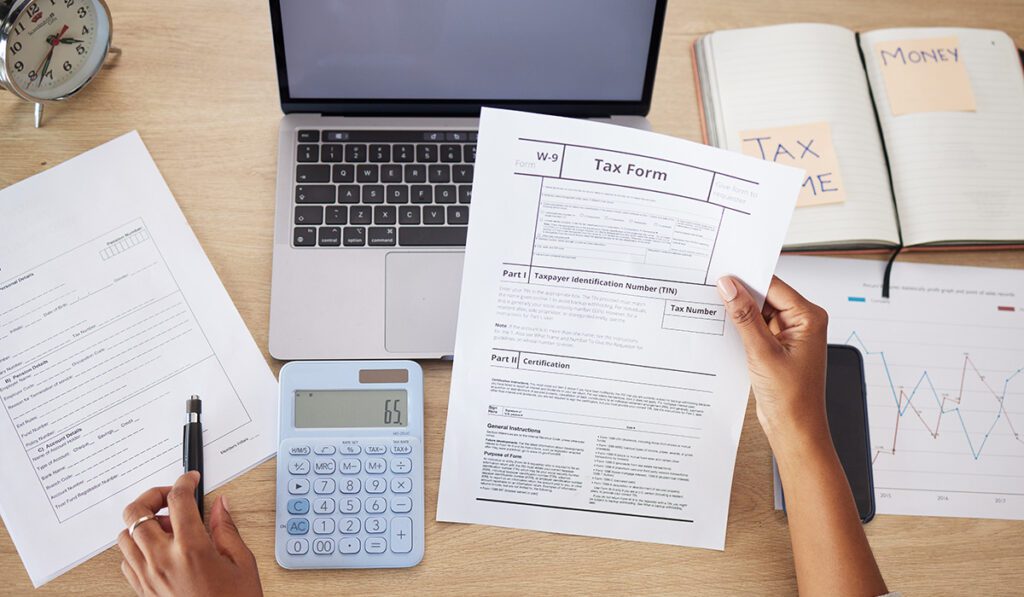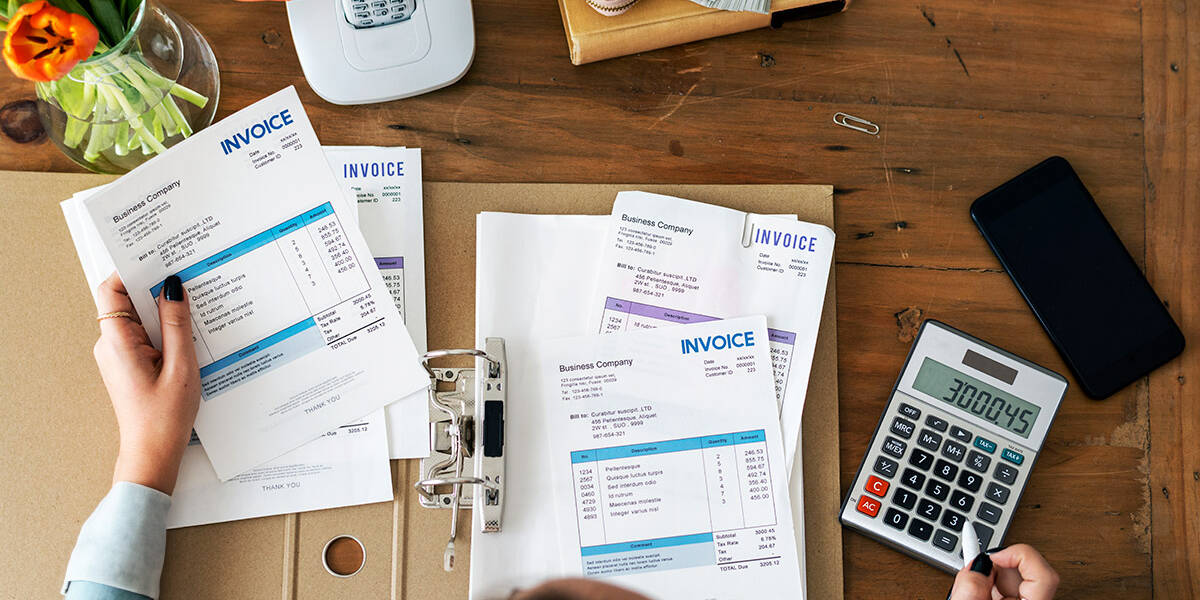

We can all agree that learning how to pay income tax in Hong Kong is a requirement for people who intend to work and live there. However, taxation requirements differ from one country to the other. The tax system in China is different from that of Hong Kong.
So, anyone doing business or working in Hong Kong should be familiar themselves with the unique tax requirements in the country.
You would need to learn how to pay income tax in Hong Kong. Unlike some nations where tax is deducted from salaries monthly, it is different in Hong Kong. In Hong Kong, taxes are billed annually, so prepare for this.
Regardless of this billing format, Hong Kong remains a haven for foreign business owners. Why? It is reported that Hong Kong has one of the lowest tax rates in the world. So, business owners are always tempted to bring their businesses here.
Aside from these facts, there is much more to know beyond just how to pay income tax in Hong Kong. Keep reading this guide to find out more!
Hong Kong Taxation System
It is now news that every individual—citizens and foreigners—is expected to learn how to pay tax in Hong Kong.
Unlike most countries that determine an individual’s tax liability based on territorial and residential jurisdiction, Hong Kong only uses territorial jurisdiction. This simply implies that only income from Hong Kong is taxed.
Business owners should know that Hong Kong classifies income tax into three categories:
- income/salary tax
- profits tax
- property tax
Each type of income tax has varying requirements. In this section, we will break down all 3 categories, so you have better understanding of how to pay income tax in Hong Kong.
1. Income/Salary Tax
This type of tax applies to wages and income received from employers. The income tax follows a progressive method in its calculations.
From 1 to 50,000 Hong Kong dollars (HKD), a 2% is tax charged. From 2%, the tax rate increases to 6%, 10%, 14%, and 17% of every 50,000 HKD increase in net income.
Usually, total salaries in Hong Kong include the following: salaries, wages, leave pay, commission, bonuses, retirement benefits, pension, termination payments, shares and stock awards, and more.
Additionally, individuals are required by the Inland Revenue Department (IRD) to submit their Salaries Tax return by June 2nd and July 2nd for paper-based submission and electronic submission, respectively.
How To Pay Income Tax In Hong Kong: Calculating Salary Tax
There are two formats for calculating salary tax in Hong Kong.
1. Taxing Total Incomes From All Sources
Every source of income is taxed at a progressive rate and based on the personal evaluation. With this kind of tax return calculation, individuals can carry losses across their different income tax types.
2. Salaries Tax
The following two formulas can be used in calculating the assessable value for salaries tax. You’re expected to pick whichever is lower:
Progressive rates: Total Income – (Non-assessable Income + Allowable Deduction + Personal Allowances) = Net Chargeable Income
Fixed rate: Total Income – Deductions (before deductions of allowances) = Net Income
2. Profits Tax
Incomes from trade and businesses are subject to profit tax. The profit tax applies to individuals, partnerships, trustees, and corporations doing business within Hong Kong, whether you are a resident or non-resident. However, it does not apply to profits made outside of Hong Kong.
Profit taxes are levied based on a two-tiered tax system. Also, the tax rate differs for corporations and unincorporated businesses (i.e., sole proprietorship, partnership).
On every corporation’s profit, there is an 8.25 percent tax rate on the first 2 million HKD; the remainder is charged 16.5 percent. On the other hand, unincorporated businesses get charged 7.5 percent on the first 2 million and 15 percent on the rest.
Depending on the type of business, there are also different forms of profit tax returns:
- Corporations — BIR51
- Non-corporations — BIR52
- Non-residents — BIR54
Additionally, the Inland Revenue Department (IRD) does not impose tax on Dividends, Value Added, Sales, Capital gains, Hotel Accommodation and interest incomes. Business owners are also expected to file their Tax returns annually from April 1st to March 31st.
How To Pay Income Tax In Hong Kong: Calculating Profits Tax
Assessable profits are also called taxable profits. The taxable profit is when non-deductible expenses, allowable expenses, and non-assessable income have been adjusted to the account.
Profits per account + Non-deductible expense – Allowable expense – Non-assessable income = Taxable profits
Business owners should keep in mind that some incomes are not taxed, and they include:
- Corporation’s Dividends
- Income from deposit accounts in Hong Kong
- Bonds (government bonds) issued under the ordinance loans
- Profits recorded for assessable income for other corporations, businesses, or individuals
- Tax reserve certificate
3. Properties Tax
The property tax is calculated on the rental income of lands and buildings in Hong Kong. Fifteen percent tax is charged on the net assessable value of all rental income, and these include:
- Gross rent received
- Management fees paid to the property owner
- Expenditure borne by the tenant
- Lump sum premium
How To Pay Income Tax In Hong Kong: Calculating Property Tax
The property tax is fifteen percent of the net assessable value. First, calculate the assessable value:
Assessable Value (AV) = Rental Income – Rates Paid by owners – Irrecoverable Rent
Then, calculate the Net Assessable Value (NAV):
NAV = AV – Statutory Allowance (20% of AV)
Property owners should know that if rent is not paid on time, it will not be calculated as irrecoverable but as rent receivable. Also, any irrecoverable rent received should be included in the AV for that recovery year.
If irrecoverable rent exceeds the AV, the deduction of the remainder will be calculated in the following year’s AV. Note that two types of property tax returns can be filed. They include:
- BIR58 — Corporations or body of persons
- BIR57 — Co-owned by Individuals or Corporations
Companies in Hong Kong with rental revenue should apply for property tax exemption. This is because the rentals will be charged under profits tax. The property tax is usually issued on the first working day of April, and then they can be filed on the 1st or 2nd day of May.
Also, know that property tax returns can be paid in two installments. The first payment should come before the end of November of the year of issue, and then the final payment should be paid in April of the following year.
Who Is Required To Pay Income Tax In Hong Kong?
With a few exceptions, every employed person in Hong Kong is required to file their taxes and learn how to pay income tax in Hong Kong.
Hong Kong uses a territorial tax method. So, every individual who has earned income from working for a company in Hong Kong or individuals who have also rendered services and received payments and have spent more than 60 days in Hong Kong are expected to pay tax returns.
Here’s how the following categories of people are differently affected by the Hong Kong taxation system and a breakdown of whether they must learn how to pay income tax in Hong Kong:
1. Expats
Expats are expected to learn how to pay income tax in Hong Kong. If expats have made income in Hong Kong but stayed less than 60 days, they will not be taxed. But, if expats remain over 60 days, they will be taxed. Hong Kong has attractive policies on expats taxes.
Expats benefit from not getting taxed again if their income has been taxed elsewhere. Aside from that, expats tax rates are calculated like locals.
2. Employees and Employers
Both employers and employees must know how to pay income tax in Hong Kong. Whether an employee is a resident of Hong Kong or not, an employer cannot withhold their tax or pay on their behalf.
However, employers can only withhold tax if an employee has been terminated or would leave Hong Kong within a month. Then, the employer would send a form to the IRD, then withhold payment till the “Letter of Release” is granted.
3. Self-Employed and Freelancers
Freelancers or self-employed is any individual offering professional services or buying and selling goods in Hong Kong. This category of people are considered self-employed entities and are required to learn how to pay income tax in Hong Kong.
They need to register as an unincorporated company with the Inland Revenue Department. Remember, we mentioned earlier that unincorporated companies are subject to profits tax on assessable profits.
4. Unemployed Persons
Unemployed persons are not expected to know how to pay income tax in Hong Kong. So, if you are out of work and not making profits, you need not worry about paying taxes. However, when you get a job, the IRD expects you to file a tax return.
How To Pay Income Tax In Hong Kong: 5 Best Payment Methods
It is most common to pay income tax in person. Some collection spots for income tax include stamp offices, post offices, business registration points, etc. In Hong Kong, there are different convenient payment methods for taxpayers, and they include:
1. Internet
One of the most common ways of how to pay income tax in Hong Kong is through the Internet. With the aid of internet banking, taxpayers can send their payments to the bank account of the Hong Kong IRD. But, ensure to pay tax returns before the due date.
2. Bank ATM
Another method regarding how to pay income tax in Hong Kong is through the ATM. Bank ATMs like Hong Seng Bank, Jetco ATM networks, etc., have the “Bill Payment” section. Just bring the account numbers or the bill details of the tax issued and pay from the ATM.
3. Post
Alternatively, some may also choose post as their go-to method for how to pay income tax in Hong Kong. Payment documents, together with a crossed check, can be sent to the postal addresses of the Commissioner of the IRD.
4. Abroad
Even when outside Hong Kong, one can still make payments. Use a Hong Kong Bank account with internet banking or a crossed check to make payments. Alternatively, IRD also accepts Bank Overdrafts and crossed checks from an overseas bank.
5. Telephone
Finally, you can also opt for the “old-school” method of how to pay income tax in Hong Kong – through the phone. Call 18031 for tax settlement with a PPS account registered with a good bill. For registration, call 18011.
How We Can Help – Our Taxation Services
Now you have a better understanding of the Hong Kong taxation structure, the different types of income tax and how to pay income tax in Hong Kong. The key takeaway from this guide is that every individual, resident or non-resident, making profits from Hong Kong is expected to pay tax.
It is important to calculate the different types of tax when you are figuring out how to pay income tax in Hong Kong. Facing any problems with filing your taxes or still unsure of how to pay income tax in Hong Kong? We can also provide additional help with filing income tax and making payments.
Premia TNC is a professional business consulting firm that helps corporations and businesses with their accounting and taxation needs. We have a team of skilled professionals available to make the entire process of how to pay income tax in Hong Kong seamless for you.
How To Pay Income Tax In Hong Kong – Frequently Asked Questions
1. How does the Hong Kong IRD determine the salary tax rates?
The IRD uses either:
- Progressive rates on net chargeable income, or
- The standard rate of total net income.
After calculations, the lower tax rate will be filed. The chargeable income may include salary, commissions, allowances, bonuses, stock options, etc. The progressive rates begin from 2% and go as high as 17%, depending on the amount of HKD earned.
The total net income does not factor in allowances. It is calculated at a standard rate of 15%, which benefits high-income earners.
2. Are there non-taxable allowances in Hong Kong?
Yes, there are. Taxpayers are entitled to a non-taxable allowance of 132,000 HKD. They will also not be taxed on allowances such as married person allowance, child allowance, single parent allowance, personal disability allowance, etc.
Taxpayers will also not be taxed on deductions like home loan interest, charity donations, self-education expenses, elderly residential care expenses, and mandatory contributions to retirement schemes. However, these deductions must be approved and recognized.
3. How do taxpayers file a tax return in Hong Kong?
Income/Salary tax returns are usually issued on the first working day of May. They are expected to be returned within a month.
However, the process is different for companies. Companies and businesses get to fill out profit tax returns, and they should file their tax returns from April 1 to March 31.
Individuals can also file their tax returns electronically. They only need to open a personal account under the IRD eTax services. Even if you do not pay taxes based on your eligibility, it is expected you send a completed tax return form. Fill in the tax return details with zero.
Also, remember to keep send on or before the stipulated deadline.
4. How do taxpayers pay taxes in Hong Kong?
From October every year, taxpayers will receive an assessment notice. Then, they can visit collection points to make payments. Aside from these collection points, other means of payment include telephone, online banking, post, and ATM stands.
5. How do taxpayers handle paying lump sum tax bills?
Unlike most countries, Hong Kong requires that taxpayers file tax returns annually. It can be overwhelming for some to pay a lump sum for tax returns. Is there a way out? Yes. Taxpayers can choose to pay installments.
However, they need to apply for this type of payment. Aside from that, they can take a tax loan. Tax loans can be taken from Hong Kong banks and other lenders. However, ensure to compare the interest rates of different lenders before selecting.

premiatnc
View All BlogsRelated Posts
April 15, 2024
Trademark Registration In Hong Kong: What You Should Know
Trademark registration in Hong Kong…
April 15, 2024
Importance of Hong Kong Company Financial Statements: How to Prepare It Well
In the realm of business, Hong Kong…
March 29, 2024
Everything You Need to Know About Hong Kong Invoice Requirements
Compliance ensures smooth financial…




